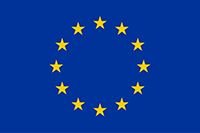INNOvative approaches to identification of metabolic TARGETS for antimicrobials
Start date: 1 March 2021
End date: 28 February 2025
Objective
Antimicrobial resistance (AMR) is a challenge to human health and health-systems, and we need novel antimicrobials or drugs that can re-sensitize multi drug resistant (MDR) bacteria to existing antimicrobials. Metabolic enzymes have largely been ignored in the search for antimicrobial targets, and they are an untapped resource. The aim of INNOTARGETS is to train ESRs in highly innovative approaches to identify metabolic drug targets in pathogenic bacteria. The training will deliver ESRs that can become creative, future research team leaders within industry or academia. The network joins 7 academic and 3 non-academic organisations, including two antibiotic discovery companies. The training is multi-disciplinary and trans-sectoral and provides 432 person-months of training to 12 ESRs. The types of targets foreseen are: 1) Metabolic enzymes that are essential for infection, Such enzymes will be identified by use of transposon libraries 2) Redundant enzymes, which can be blocked in parallel. Relevant pairs of enzymes will be identified by use of metabolic models, and a search for bioactive molecules, with affinity for more than one target will be carried out using a novel screening platform. 3) Metabolic enzymes which are essential for expression of resistance mechanisms or spread of resistance plasmids in MDR bacteria. Putative targets for all three types of reactions will be validated using cell culture and animal models.
INNOTARGETS will establish a joint training syllabus designed to widen the career prospects of the ESRs and to optimize their professional competences. It includes training through research, including secondments, network wide training courses and summer schools, self-directed learning, workshops and training through interaction with external partners and visiting scientists.
See the project page on CORDIS.europa.eu

The project has received funding from the European Union’s Horizon 2020 research and innovation programme under the Marie Sklodowska-Curie grant agreement number 956154. This website only contains the INNOTARGETS consortium’s views and the Research Executive Agency is not responsible for any use that may be made of the information it contains.
